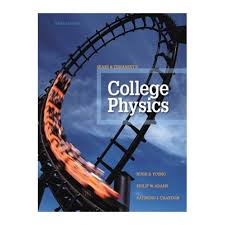Instructor: Profs. Jorge L. Rodriguez and Lori L. Rodriguez
e-mail: jrodrig@fiu.edu, llerodrig@fiu.edu
Phone: 305.348.0259
Office: CP 202
Office Hours:
MoWe 2:15PM-4:00PM
Class Meets in OE 134
MW 12:00-2:15 PM & F 1:15PM-4:45PM
Course Description:
PHY2054 is the second installment of the non-calculus introductory physics course offered at FIU. The course covers the physics of electricity and magnetism, geometric and wave optics, interference and diffraction and the structure of matter. Details of what is covered and when is listed in the Course Schedule page. The course outline and the material we’ll cover will will follow closely to the text book College Physics 10th Edition by Hugh D. Young by design.
Your are required to attend all classes and are expected to read the material in the text book beforehand. My lectures are designed to help you comprehend the material presented in the text and help you develop your problems solving skills. It is this imperative that you familiarize yourself with the material before you come to class.
The course will be divided into 2 or three sections punctuated by an in class exam covering the preceding material. The final exam will be a comprehensive exam.
Pre-requisites and Recommendation:
There is one prerequisite, Physics I with or without Calculus (2053 or 2048). Given that his course is a continuation of the Physics I you will are expected to have a good command of the material presented in that course. In particular, command of the tools you learned in that course are exceedingly important: vector addition, multiplication and the component formalism, free body diagrams, techniques using conservation of energy as well as Newton’s Laws of motion, equations of motion (kinematics). Also, as with Physics I, you should be somewhat proficient with geometry, trigonometry as well as algebra including vector algebra. Physics relies heavily on mathematical exposition and your homework and exam problems will require you to manipulate mathematical expressions to a significant degree.
Most of your grade will come from in class and final exams which consist of conceptual questions and questions that require you to calculate results. Problem solving techniques acquired in this course and in Physics I is the primary way you will be assessed in this course. To be proficient in physics problem solving you need to understand the physical principles involved and then have the ability to arrive at a mathematical solution. The most effective way to attain these skills is to practice problem solving by doing as many problems as you can. It is also quite helpful to work in groups. One possible approach is to work out problems and then present your solutions to your study partners. I find that explaining something to some else is the best way to learn yourself.
Problem Solving Classes:
The FIU physics department offers problem solving classes during the Spring and Fall semesters (sorry these are not offered in the summer sections). These courses are an excellent and relatively inexpensive way to get help with solving word problems in physics. For additional information please check this page:
http://www.fiu.edu/physics/FIUPhysicsTutoringAndProblemSolving.html
Free Physics Tutoring:
Free tutoring is available from the Center for Academic Success/University Learning Center. At the MMC the location is in GL 120 next to the Starbuck, you really can’t miss it. Their website does not explicitly advertise the fact that they offer physics tutors but they do. In fact, several of our physics undergraduate students (majors) work there and are more than wiling to help you. They even have online tutoring. You can also come to my office hours and will help you.
